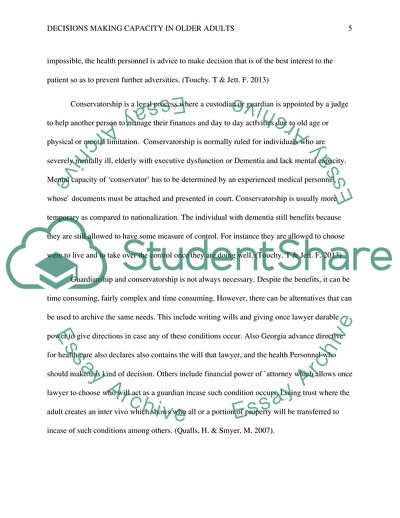N/A Assignment Example | Topics and Well Written Essays - 500 words - 5. https://studentshare.org/medical-science/1848029-decision-making-capacity-in-older-adults
N/A Assignment Example | Topics and Well Written Essays - 500 Words - 5. https://studentshare.org/medical-science/1848029-decision-making-capacity-in-older-adults.


